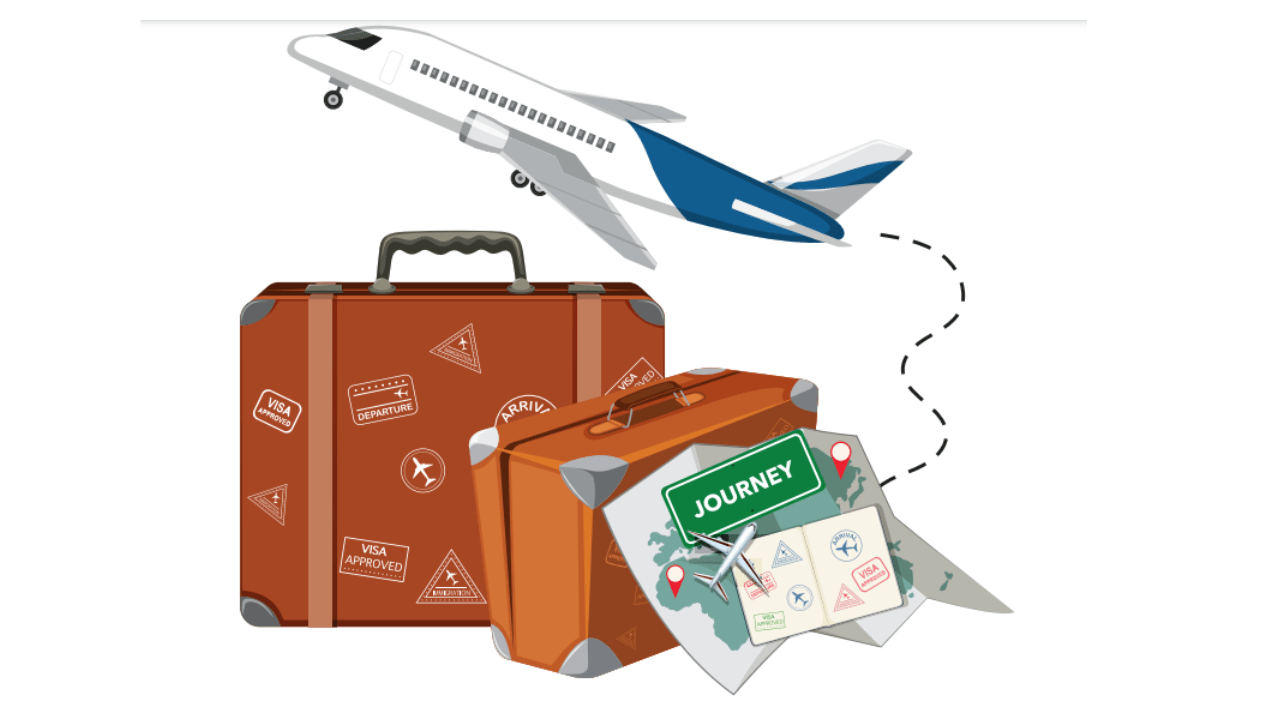 If there is one word that has gained global acknowledgement and attraction in the last three years, especially among Nigerians. It is the word ‘japa.’ Japa is a Yoruba word for a man’s sojourn without an immediate plan of returning home, and or without looking back to have a rethink. It has gained so much popularity among Nigerians. So much so that travelling out of the nation is now commonly known as ‘japa’. Of a truth, many Generation Z are in that category of people who just don’t see any point in remaining in Nigeria if they want to achieve for themselves. Interestingly, one of the preferred nations for Nigerians to run to in the last three years is the United Kingdom. Young Nigerians have taken advantage of the UK’s quality education, the friendly visa process and the immigration policy attached to a student visa, to move in droves to the United Kingdom. Nigerians are no doubt amongst the four largest student communities in the United Kingdom. According to the February 19, 2024 edition of the Business Insider Africa, Nigeria has a record 73 percent year-on-year increase in sponsored study visas. In numerical terms, this meant an increase from 33,958 in the year ending June 2022 to 58,680 in the year ending June 2023.12 Sept 2023.
If there is one word that has gained global acknowledgement and attraction in the last three years, especially among Nigerians. It is the word ‘japa.’ Japa is a Yoruba word for a man’s sojourn without an immediate plan of returning home, and or without looking back to have a rethink. It has gained so much popularity among Nigerians. So much so that travelling out of the nation is now commonly known as ‘japa’. Of a truth, many Generation Z are in that category of people who just don’t see any point in remaining in Nigeria if they want to achieve for themselves. Interestingly, one of the preferred nations for Nigerians to run to in the last three years is the United Kingdom. Young Nigerians have taken advantage of the UK’s quality education, the friendly visa process and the immigration policy attached to a student visa, to move in droves to the United Kingdom. Nigerians are no doubt amongst the four largest student communities in the United Kingdom. According to the February 19, 2024 edition of the Business Insider Africa, Nigeria has a record 73 percent year-on-year increase in sponsored study visas. In numerical terms, this meant an increase from 33,958 in the year ending June 2022 to 58,680 in the year ending June 2023.12 Sept 2023.
According to the publication, as at February 2024, Nigerian students are now increasingly turning away from pursuing their undergraduate studies in the United Kingdom, with the number of applicants from Nigeria having a decline of 46 per cent, more than any other country in the period under review.
However, it is easy to attribute the drastic decrease in applications from Nigerian students to the UK to the weakening of the naira and the recent UK visa restrictions preventing them from travelling along with their dependents or close family members to the UK for further study. However, there are also a number of challenges generally faced by minority groups in the UK. Two of such are unemployment, underemployment, and child safeguarding. Going by the UK immigration policy, students are not allowed to work for more than twenty hours a week. This is understandable because they are in the country for further study and not as skilled workers. Incidentally, most Nigerians found it difficult to navigate the socio-economic reality on ground due to the weak Naira. It is even more difficult for students with dependents, because of the need to give them comfortable accommodation and other basic needs.
Coping with a twenty hour per week job while undertaking their studies at the same time, becomes a huge challenge to many, especially those who are not lucky to get a job close to their residence or even within the same town. “While my course mate graduated a few months ago, I had to get an extension and re-write my thesis because my result was bad,” says a Nigerian male student who shared his story with me recently. When I asked him further, why he did not perform well, he said it was because he had to juggle between school, work and taking care of his family. According to him, it was a difficult period because he had to travel out of town to work and then return to attend to his academic assignments and family.
According to Ade, a 2023 graduate of a UK university, “My advice to any Nigerian planning to come to the UK to study, especially those with dependents, is that they should have a very strong financial backing, preferably look for a cheaper university outside of the UK, or go alone to the UK to study, meaning without dependents. It may be a difficult decision, but it is worth it.” He further said, “It’s not worth it to bring one’s family over to bear the consequences of harsh weather, ever changing immigration policies, extreme financial difficulties, daily fear of the unknown and so on, all in the name of studying abroad.”
The other challenge is child protection and safeguarding. Nigerians especially, are not having it easy on this, as many families either had issues with the social work/police/safeguarding officer, or are still having issues with them regarding the wellbeing of their children. Apart from the struggle to support the family financially, the socio-cultural differences between Nigeria and the United Kingdom is also a huge challenge. There are cases of Nigerian families having issues with government social workers in their various councils. In most cases, it is because they lack understanding of the traditions, culture and social context of the two nations and also lack knowledge regarding the children’s safeguarding policies in the UK.
Not too long ago, a Nigerian family who left their kids at home while sleeping during the day, just to quickly go and get groceries and medication for them around the neighborhood, were taken to the police station where they were detained for about seven hours. In the process, they had their new BRP (Biometric Residence Permit) taken away by the Police. Although the Police initially denied taking the BRP. It was later discovered that one of them took it from the couple’s house. “I still do not know what to do as I cannot work without it and yet we have to pay bills. It is difficult, but for God’s grace.” says the man, whose BRP was taken away from their house by the police.
The issue of children safeguarding is a big one among Nigerians. Many Nigerian families are having this issue with school safeguarding officers. It has got to an extent where some are confused on what to do, while the authorities are also not finding any solutions to it either. There is a revision in the government’s ‘Working Together to Safeguard Children 2023’ document, which includes the principles of working with parents and carers and centres on the importance of building positive, trusting and cooperative relationships so as to deliver tailored support to families. The minority groups, including Nigerian families, are yet to see this working effectively, as many still believe that the authorities do not care about them, but rather are more interested in destabilizing a family unit that they have spent years to build and love.
Nigerians with dependents living in the UK , and those planning to go to the UK with dependents should realize that the efforts of the UK government on children safeguarding is a national intervention across the nations in the UK, for the benefit of all. It is indeed a global anthem supported by the United Nations. It is pertinent to understand that the system may be different from what we have in Nigeria, but they are all based on a similar vision of safety and protection for every child.
According to a staff of a charity organization based in Hull, working with the minority communities and different government agencies, “minority groups need to do more and collaborate with different agencies and children safeguarding practitioners, to have knowledge and understanding of various socio-cultural practices that can affect children’s safeguarding (as defined by the UK). This will help them work appropriately, confidently, universally and with better understanding of the challenges and needed support. It will also help the various agencies to proffer effective strategies at engaging with the minority groups in order to protect and safeguard their children better.
As Nigerians daily ‘japa’ to foreign lands, especially to the United Kingdom. It is important for them to know and abide by their laws and respond to them appropriately, for the benefit of all. This is the surest way to live together, longer and lovingly in any foreign land with their children and as a family. They must cultivate an act of intentional bonding, strong interpersonal relationships, trust, faith in God Almighty and unshakeable values that would guide them through thick and thin.
___________________
Fatoki Taiye Timmy is an innovative social development and human rights specialist with 15+ years experience in the development sector and with special focus on the West Africa Region. Has a strong track record of delivering technical support in educational programmes, highly competent in capacity development, institutional reforms, child rights and protection, youth development, and gender issues. He is a high achiever with goal-bound, time-conscious, strategic planning and good interpersonal relations. Has presented a number of papers including a paper on promoting the girl child’s access to education which was presented at the 2008 Bill and Melinda Gates International Youth Conference. Also presented ‘Youth Shadow Report on HIV/AIDS in Nigeria’, a United Nations General Assembly (UNGASS) 2008 Shadow Report with four other people.
Skilled in project management, gender issues, child protection, youth development, community engagement, policy development, advocacy and lobbying, capacity, organizational development and mental health crisis management. He is a board member of three NGOs in Nigeria, two of which he is the chairman -Aspilos Foundation and Value Reorientation for Community Enhancement (VARCE).
@lagbenjo (tweeter)
Fatoki Taiye Timmy (Lagbaja) Facebook
Taiye Timmy Fatoki (LinkedIn)
Lagbajadon (Instagram).
























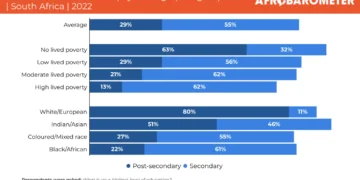

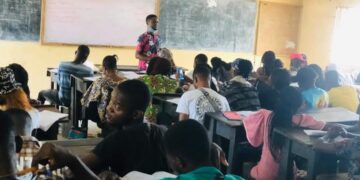
























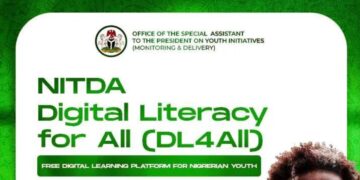














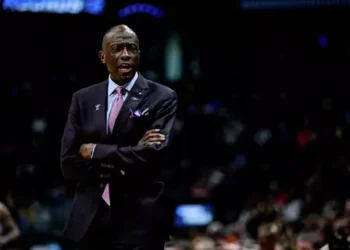


 EduTimes Africa, a product of Education Times Africa, is a magazine publication that aims to lend its support to close the yawning gap in Africa's educational development.
EduTimes Africa, a product of Education Times Africa, is a magazine publication that aims to lend its support to close the yawning gap in Africa's educational development.

